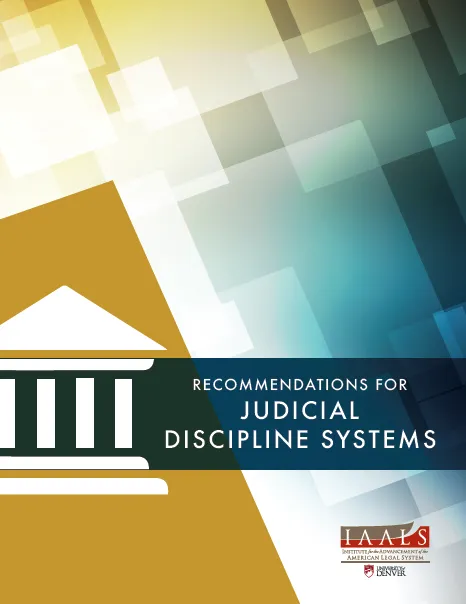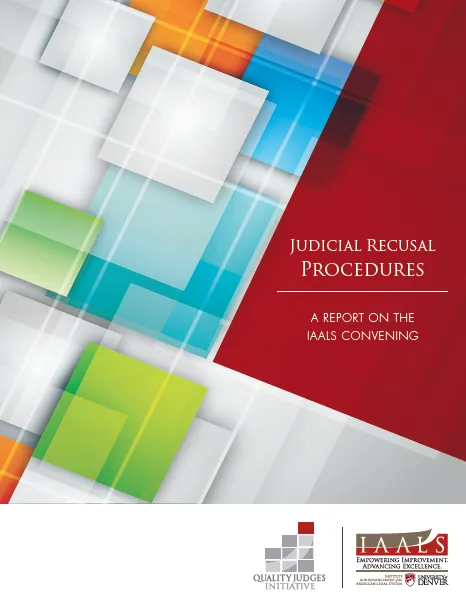Judicial Discipline and Recusal

Recommendations for judicial discipline systems
The public must have confidence that judges who abuse their power or undermine the justice system by engaging in misconduct are not above the law and will be disciplined. So, IAALS determined that we needed to better understand how judicial discipline systems work and provide suggestions for improving them.
In enforcing ethical rules for judges’ behavior—both on and off the bench—judicial discipline systems (e.g., commissions, boards, councils, committees) play a vital role in ensuring that judges who serve on state courts inspire public trust in the integrity, impartiality, and accountability of the judiciary. At the same time, no two states structure and operate their processes for disciplining judges in the same way. Variation exists, for example, in the selection and composition of the commissions that oversee the discipline system, the way in which complaints are investigated and adjudicated, and the sanctions that may be imposed for misconduct. Perhaps the most controversial difference across state judicial discipline systems is the circumstances under which complaints against judges are made public.
After compiling information and analyses about discipline systems across the country, we convened a diverse group of stakeholders to discuss them. Our report, Recommendations for Judicial Discipline Systems, is the result of that research and collaboration. In it, we make recommendations for judicial discipline systems that are designed to achieve a balance between transparency and accountability, confidentiality and trustworthiness—all with the goal of enhancing public trust and confidence in the judges of this nation.
This report offers basic recommendations for state discipline systems and a range of options in six areas:
- Promoting impartial judicial decision-making
- Promoting commission impartiality
- Sanctions
- Fairness and efficiency in commission operations
- Advisory opinions
- Education and dissemination
Recommendations for judicial recusal procedures
Judicial recusal in appropriate circumstances is essential to ensuring a judiciary that is qualified and impartial and that inspires public trust. But states vary substantially in the key features of their judicial recusal procedures, and as a result, some procedures are more likely to inspire public trust in the integrity and impartiality of the judiciary than others.
To establish a set of best practices for judicial recusal procedures, IAALS brought together judges, lawyers, court administrators, and scholars from around the country to review the landscape of recusal and find consensus. Our report, Judicial Recusal Procedures, is the result of that collaboration and makes recommendations in eight areas for crafting recusal procedures that are efficient, transparent, and fair to both judge and litigant:
- Written, clearly articulated, and accessible recusal procedures
- Who decides recusal motions, and with what opportunities for review
- Time limits for deciding recusal motions and freezing the litigation
- Recusal motion denials in writing or orally on the record
- Effective appellate review of recusal decisions and standards of review
- Replacing recused judges
- Making advice about recusal available to judges
- Collecting aggregate data on recusal activity
Project News & Updates
Project Team
Connect & Get Involved
Our work is only possible through purposeful listening and collaboration with people across the country. Everyone, from legal system stakeholders to members of the public, plays a critical role in our innovations. Together, we jumpstart the groundbreaking and achievable solutions that will clear a path to justice for everyone.



